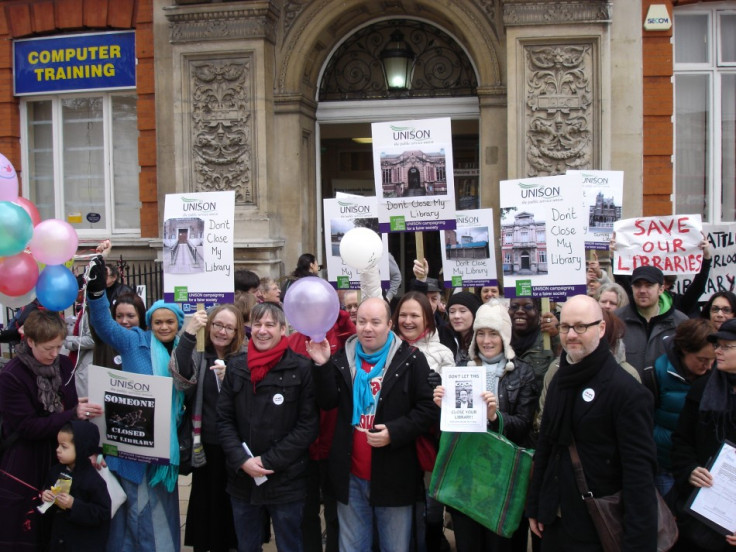Why Our Libraries are Worth Saving [OPINION]

Protesters against cuts to the UK library service, which they claim is leading to its "death by a thousand cuts", recently took their fight to Westminster.
Authors Philip Ardagh and Kate Mosse led a contingent of community action groups on a rally to Central Hall against the "war of attrition" on the service.
When local authorities across the country proposed the closure of hundreds of libraries in 2010, they underestimated the public backlash that was to follow.
As protesters turned out in their thousands demanding the protection of the service, councils backpedalled but then rebranded many libraries as volunteer-run "community" facilities. This basically represents the council turning off a library's life support and leaving the community to continue its resuscitation.
Running an efficient library is no mean feat and is almost a full-time job for any volunteers who want to pick up the baton.
Is there a sufficient number of volunteers to take up the slack? Many lack the time or financial freedom to volunteer and those that do are often already engaged in charity work of one kind or another. Dedicated volunteers are a rare commodity.
Earlier this week, culture minister Ed Vaizey told the committee on culture, media and sport that cuts in professional, knowledgeable staff represented an "opportunity" for communities.
On closer inspection, however, the cuts give authorities the freedom to make easy savings while appearing to be filling their statutory obligation. They watch local libraries die on the vine, with the onus of responsibility shunted to the community.
There is a reason the library debate has caused such vehemence. It is one of the few public services within which every user has their own personal attachment. No offence to the binmen, but you don't get that with waste management services.
l remember my first library discovery. On a lone trip to the local library at the age of nine, I left with a copy of John Steinbeck's Of Mice and Men, a book that remains one of my all-time favourites.
I loved the book, but it was not until I discussed it with my parents that I realised it was a well-known and highly regarded work. Prior to that, I thought that it was my discovery and mine alone, something that I had been drawn to free of the obligations of a set educational curriculum, but which taught me a great deal about life and sparked a love of literature.
While covering the protests to the cuts in services, I had an opportunity to discuss their importance with the outspoken author Philip Pullman. He stressed that libraries create a crucial atmosphere of independent discovery and serendipity.
He said: "All of this is falling away - we are preparing a generation of barbarians."
Further discussions with teachers revealed a concern with the overly homogenised nature of modern education. Pupils are led down a path with the aim of ticking off their statistics, rather than firing their individual imaginations. Many enterprising teachers do their best to incite an appreciation for the power of the written word and this is often accomplished with a trip to the local library.
This points to another fundamental role that libraries play, that of community centres. In an atmosphere of increasing austerity, with frozen wages creaking under the weight of increasing prices, the library remains a place where a person can spend several hours outside the home, among their neighbours and without spending a penny.
A glance at most local authorities' (shockingly token) analyses of library usage shows that the most regular visitors are young mothers and their children, as well as the elderly. The importance of books to a young person's development is clear, while older members of our community, who are often consigned by society to a lonely, shut-in existence, have a comfortable social outlet.
Many argue that library campaigners are shouting too loud, that the service is not under the threat that they suggest, with mere cost savings taking place.
One look at Oxfordshire will trump that argument. Oxfordshire county council's original proposal was to see the closure of 20 of its 43 libraries. This was blocked by a strong, sustained public protest. What would have been the saving generated by such a savage cut in a much-loved service? A projected £2m over four years. A paltry sum demonstrating the level of cuts that would be required to make any savings of note from what is a financially efficient service.
According to Unison, more than 100 libraries across the country have been closed, become volunteer-run or turned into social enterprises. While hundreds more remain under threat, it is clear that the fight is not over.
Government critics are keen to paint library protesters as characters akin to Steinbeck's Lennie Small, hugging their libraries too tight to their chest, but that is a far better notion than relaxing their grip and realising too late that it has slipped through their fingers.
© Copyright IBTimes 2025. All rights reserved.




















